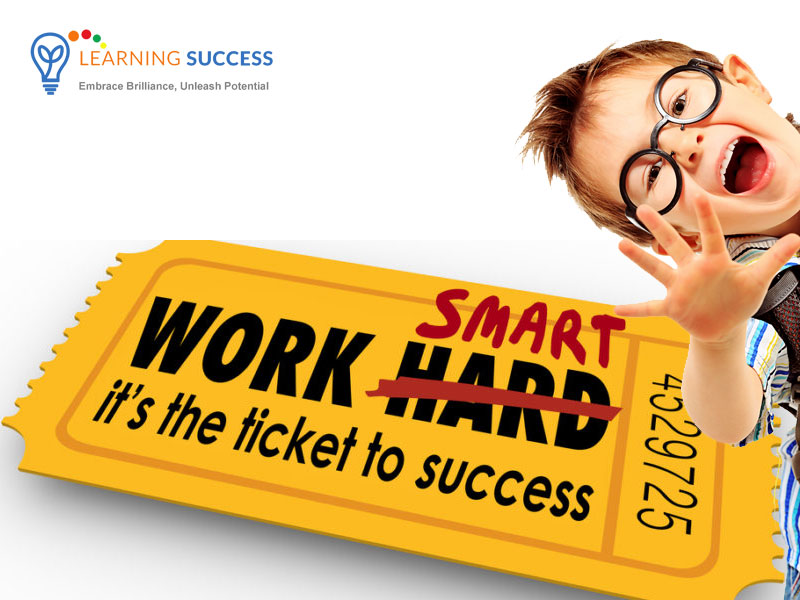
Have you ever seen someone put in a huge amount of effort when there was a much simpler solution?
Funny story
There was this toy factory. They put out brilliant toys.
But they had less-than-brilliant factory engineers. (or maybe we could say too-smart-for-their-own-good)
No Toys in the Box?
The packaging assembly line was an engineers dream. High tech gadgetry made sure that the boxes got made. Toys got into the box, wrapped up, sealed, and off they went.
Except for once in a while.
Sometimes the machine hiccuped and the toy didn't get put in the box. The box got closed, sealed and sent.
And somebody got a box with no toy.
Of course, that made for a sad child and an angry customer. So the company had to do something.
The engineers were called in to come up with a solution.
They pondered. They scratched their perfectly manicured chin beards. They walked in circles and discussed the matter deeply among themselves.
Together they designed a machine. That machine would weigh each box and if it wasn't heavy enough the system would shut down so the empty box could be removed.
Problem solved
A Little Pricey?
At a pretty big cost.
With the machine, downtime, and engineers fee it was a grand total of around a half million dollars.
Oh well, the engineers didn't care. It was magnificent. Complex and using all of the latest technology.
Then all they had to do was put an employee in place to remove the box and restart the assembly line again.
So that was working well, no empty boxes were going out. No unhappy customers.
Until a few weeks went by and the factory manager noticed the assembly line had not shut down in a while.
No empty boxes were coming through the weighing machine. So the assembly line just kept running.
Thinking that was strange he went down on the factory floor to see what was going on.
What's Up?
He checked on the employee who had been placed to remove the empty boxes to see if he knew.
Only to find him kickin back and enjoying a good book.
WHAT?
As it turned out, the employee had gotten tired of getting up to remove the boxes so he just set a fan next to the conveyor belt ahead of the machine. The fan blew the lighter, empty boxes off the conveyor belt and into a trash can.
Rendering the whole engineered box checking system needless.
With a $19 fan.
The moral of the story?

Key Takeaways:
Work Smart
Work smart!
Sometimes people put massive amounts of time and money into a problem when there's a simple solution.
Sometimes you just have to look around and ask. Is there an easier way?
If you've been frustrated with your child's learning difficulties, and seemingly tried everything. This is a sign. A sign that it may be time to look for another way.
And that's what I'm here to help you with today.
How to help your child become a better learner.
The easy way.
Yesterday I told you I'd dive deeper into the work smart strategies. Strategies you can use to get your child on the track to proficient reading and great grades. (So you can kick back and read a good book)
So let's start.
Work Smart Idea #1
The first thing to think about is that since your child has been struggling there is going to be some resistance. Maybe a lot.
So, in this case, working smart means not going head to head with that resistance.
Forcing homework practice IS going head to head.
And the problem is not about learning academics anyway. It's about the underlying skills of learning.
So go at those instead. They are not academics, and don't seem related. So you won't get resistance.
You will be building up the skills that will make academics come easier.
So do that.
Learn how to build up those skills here.
Work Smart Idea #2
The second work smart tactic is to praise effort when learning.
Context is important here. It is during the learning process that praising effort is important. During learning, mistakes are just part of the process.
If you teach your child that, then everything gets much easier.
That doesn't mean just praise effort all the time. Sometimes results are what counts.
So know when to praise effort and when to praise results.
Some people want to go overboard with this and assume everything is about the effort.
No.
Failing a test or losing a sports competition is typically not about the effort during the test or competition. Making it so gives a false sense of reality. So don't do it then. Only during learning.
Proper praise of effort must be during learning.
Over time this builds grit.
Since most kids who are struggling can be losing grit, this is very important.
Because grit is the most important ingredient in your child's success.
Grit is the biggest predictor of success in anything. So helping your child build it is one of the best things you can do for them.
You can learn more about this process here.
Work Smart Idea #3
The third work smart tactic is to help your child develop their own natural learning ability. You do this through neuroplasticity.
Neuroplasticity is the brain's ability to change and grow. And you can stimulate that change and growth with the right exercises.
You can actually help your child's brain develop faster and better.
And you can do so at any age.
Making learning much easier for them.
Why keep beating your head against the wall (not a good way to develop the brain) when you can simply help your child's brain work better?
And the best way to make that happen is through developing proprioception.
You can find out more about that here.
This is best done at home
These techniques are best done by you. They work better that way. Even if you only do just a few minutes each day.
Because you are the person they most seek approval from. That also means that you are the person that can help the most. But only if you strategize properly.
There are pitfalls and I'm guessing you've already seen a few.
It's best to avoid those and use the proper strategies.
These strategies have been shown to work thousands of times. For thousands of children. They'll work for your child as well.
A couple more important things:
Research shows that HOW you help is critical. As a matter of fact, done wrong, your help can backfire.
- Helping by building up confidence in tasks while you help developmentally is highly beneficial.
- Actually helping too much with homework tasks is generally detrimental.
So what the research is showing is that your role is to help them build the grit, the habits, and the underlying skills and then give them the autonomy to develop their academic skills on their own.
Helping in homework where it is needed, and always being there for your child, of course, that's good.
It’s the hovering that is bad. Negotiating and/or punishing for homework done or not done. Actually doing it for them. Things like that.
Instead, it’s best to build the confidence while building up non-academic developmental skills. Then let them transfer that confidence.
YES, confidence is transferable. You can actually help your child build confidence in one skill and then help them transfer it to another skill. It doesn’t always happen naturally but you can use tactics to make it happen.
Once you do that your child will learn easier, better grades will ensue, homework battles will go away, and you'll have a nicer and easier life.
The Best Work Smart Strategy
The best work smart strategy is to get yourself the Learning Success System.
Once you get that, the system will lead the way for you.
Step by easy step.
You'll see regular improvement in your child and over time those little improvements will add up to big ones.
I'll admit. It won't happen in a day. There are no push button fixes.
But if you get started today you'll start to see improvement in no time.
The Learning Success System is non-academic. Instead, it builds up developmental skills that will help your child succeed in academics.
Because, as science shows, that is the best way for parents to help their children.
I hope that helps. Parenting is difficult stuff. Knowing little facts like this make all the difference. Too bad no one gave you a handbook right?
That’s alright. I’ve got your back.
Liz
Learning Success
P.S. Why am I always harping on confidence? Isn’t this about academic skills? Well yes, it is, but science has shown that the most important factor in developing those skills, and any other skills, is grit.
And grit is built from confidence.
It’s a matter of keeping going even when the going gets tough. Without grit, failure is certain. With grit, success is inevitable. It’s just a question of when.
Do You Need help with a Learning Difficulty?
Our simple online analysis will help you get to the core of the problem and find the right solution for you.
Understanding how to help someone with a learning difficulty starts with understanding which micro-skills are affected. When you learn which of the micro-skills is the problem, you will then be on your way to solving it.
You'll also learn how to:
- Build confidence
- Enhance Learning ability
- Eliminate avoidance
- Build grit
You can get this analysis for free by filling out this simple form. This will help you get to the bottom of a learning difficulty and provide you with a solution. If you are ready to put this problem behind you click the button below and fill out the form.










